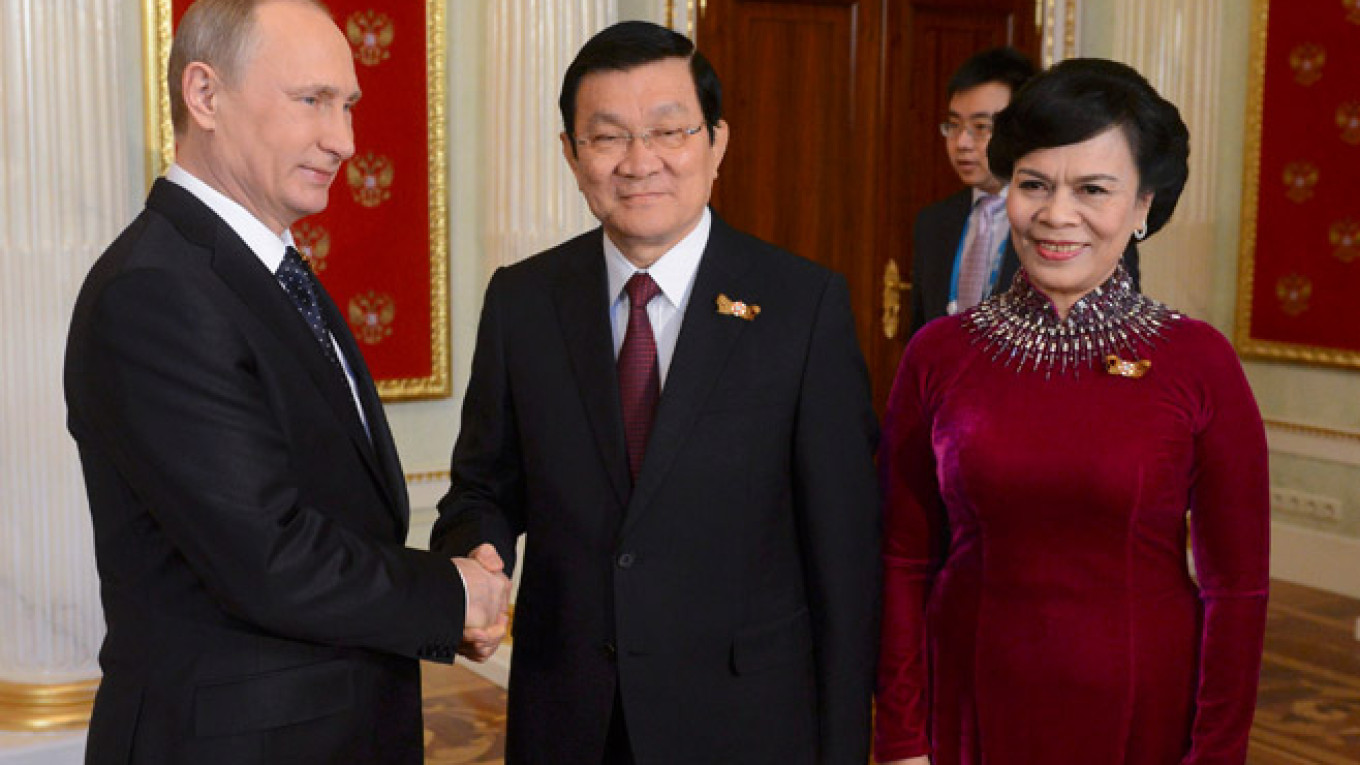The Russian government said Monday that it has approved a draft agreement for a free trade zone between Vietnam and the Russia-led Eurasian Economic Union (EEU) as Moscow seeks to boost ties with Asia amid worsening relations with the West over the Ukraine crisis.
The draft document lowers or annuls import duties on a wide range of goods with the exception of several unidentified "sensitive commodity items," the government said in a press release.
The agreement will be ratified on May 29 at a summit meeting of the EEU, the Interfax news agency cited Kazakh President Nursultan Nazarbayev as saying earlier this month. The EEU, officially formed on Jan. 1 this year after heavy Russian lobbying, is an economic alliance of post-Soviet nations consisting of Russia, Belarus, Kazakhstan and Armenia.
The deal marks another stepping stone in Russia's move to boost economic ties with Asia as Moscow hunts for new sources of investment to fill the gap left by Western sanctions over the Ukraine crisis.
While trade turnover between Vietnam and Russia stood at just under $4 billion in 2013, according to Russia's Economic Development Ministry, Russian Prime Minister Dmitry Medvedev said in April that he sees trade rising to $10 billion a year over the next five years.
A deal with Vietnam could also serve as a launchpad for Russia to ultimately reach a free trade agreement with the Association of Southeast Asian Nations (ASEAN), a trade bloc of the regions' biggest economies.
ASEAN's members include Vietnam, Indonesia, Malaysia, Singapore, Thailand and the Philippines. The trade bloc's total gross domestic product stood at $2.4 trillion in 2013, which, if considered as a single country, would make it the seventh-largest economy in the world, according to an ASEAN report published last year and cited by consulting group McKinsey.
A Message from The Moscow Times:
Dear readers,
We are facing unprecedented challenges. Russia's Prosecutor General's Office has designated The Moscow Times as an "undesirable" organization, criminalizing our work and putting our staff at risk of prosecution. This follows our earlier unjust labeling as a "foreign agent."
These actions are direct attempts to silence independent journalism in Russia. The authorities claim our work "discredits the decisions of the Russian leadership." We see things differently: we strive to provide accurate, unbiased reporting on Russia.
We, the journalists of The Moscow Times, refuse to be silenced. But to continue our work, we need your help.
Your support, no matter how small, makes a world of difference. If you can, please support us monthly starting from just $2. It's quick to set up, and every contribution makes a significant impact.
By supporting The Moscow Times, you're defending open, independent journalism in the face of repression. Thank you for standing with us.
Remind me later.


